About Helen Ross McNabb Center Loudon County
The Helen Ross McNabb Center Loudon County offers a variety of services to help people struggling with addiction and mental health issues. These services include dual diagnosis treatment, young adult rehab, adult programs, military rehab, men’s and women’s programs, outpatient rehab, intervention services, aftercare support, and various types of therapy. The center has a strong commitment to helping people overcome their challenges and regain control of their lives.
Addiction Treatment Programs
Dual Diagnosis
It’s common to have both a mental health disorder and substance use problems. The right rehab in Tennessee can treat both issues. In dual diagnosis programs, the activities, peer support, and counseling are tailored to the unique needs of those with mental health concerns. This may include additional therapy, medication, or peer support.
Young Adult Rehab
A young adult rehab in Tennessee can provide every level of care while addressing the unique needs of young adults. In a young adult program, the activities, peer support, and counseling are tailored to the unique needs of this age group. This may include talking about how to start a career, have a family, and live independently.
Adult Program
An adult program in Tennessee helps clients overcome substance use and address issues such as employment and family. In an adult program, the activities, peer support, and counseling are tailored to the unique needs of this age group. This may include talking about how to build a career, raise a family, and handle the many responsibilities of independent living.
Military Rehab
Being a military member or veteran is uniquely challenging. Choose a military rehab in Tennessee to get the support you need to overcome addiction and learn new life skills. In a military program, the activities, peer support, and counseling are tailored to the unique needs of service members and veterans. This may include trauma-informed care, treatment for PTSD, stress management, and more.
Men's Rehab
Those who join a men’s rehab program in Tennessee are given training in key life skills to help them address their unique challenges. In a men’s program, the activities, peer support, and counseling are tailored to the unique needs of men. This may include talking about career development, fatherhood, communication strategies, and more.
Women's Rehab
Women need unique support, and a women’s rehab in Tennessee can help them manage gender-specific concerns while overcoming addiction. In a women’s program, the activities, peer support, and counseling are tailored to the unique needs women have. This may include talking about building a career, motherhood, relationship safety, and more.
Insurance Coverage
Medicaid
If you have Medicaid, you can use it to help pay for substance use treatment in Tennessee. You can access multiple types of treatment in centers that accept Medicaid, including detox, inpatient, and outpatient care.
Private insurance
In Tennessee, using private insurance to pay for rehab can allow you to get the care you need. You’ll want to find a treatment center that’s in-network with your coverage and contact the insurer to find out details about coverage and out-of-pocket costs.
Self-pay options
There are many payment options for rehab in Tennessee, including self-pay. This option, also known as private pay, allows you to write a check, use a medical loan, or send money to the center electronically. The fee structure may vary depending on the type of care.
Financial aid
One option for paying for rehab in Tennessee, if you’re struggling, is using financial aid programs. You may be able to find aid through community groups in your area, and individual treatment centers may offer grants and scholarships as well.
Medicare
In Tennessee, Medicare is one of your options when it comes to paying for rehab. Your coverage can pay some or all of the costs of rehab. Different Medicare plans have different coverage details, and it’s important to choose a center that accepts your plan.
Levels of Care
- 1
Outpatient Rehab
For many people, it’s important to be able to work and attend school during treatment, and outpatient treatment in Tennessee gives you that opportunity. During outpatient treatment, clients have independence outside of sessions, allowing them to work, attend school, and practice their new habits in real-world situations.
- 2
Aftercare Support
Having long-term support and encouragement is vital for long-term recovery, and aftercare in Tennessee provides those resources. A strong aftercare program can include ongoing counseling, education and employment support, housing services, and connections to community resources.
- 3
Intervention Services
If your loved one needs addiction treatment, intervention in Tennessee may be a great option. Your family can get pre-intervention counseling, help with the event itself, and support in helping your loved one find and complete a high-quality rehab program.
Therapies
Cognitive Behavior Therapy
Cognitive behavioral therapy acknowledges that your thinking impacts your emotions and actions and helps you create healthier thought patterns. CBT can help you identify and challenge maladaptive thoughts, calm your mind, and face your fears rationally.
Dialectical Behavior Therapy
Dialectical behavioral therapy acknowledges that your confidence and coping skills have a big impact on your substance use habits. DBT can help you replace problem behaviors with skills that give you a healthier way to manage stress and handle substance use triggers.
Experiential Therapy
Experiential therapy in Tennessee gives you a unique way to express your emotions, which helps you overcome challenges that are holding you back from a better life. Substance use treatment includes detox, inpatient treatment, and outpatient care, and experiential therapy may be a part of each of these stages. The goal is to help clients work through their emotions using healthy strategies instead of substance use.
Family Therapy
Talking about what we’re going through is an important way to heal, and family therapy in Tennessee gives you that opportunity. You have a safe environment to address challenging relationships, trauma, and other issues. Family therapy is a common part of both inpatient and outpatient substance use treatment, and may be used to help address trauma, build better relationships, and help loved ones become part of your support network.
Group Therapy
Talking about what we’re going through is an important way to heal, and group therapy in Tennessee gives you that opportunity. In rehab, group therapy is only one of the elements of treatment, along with activities, peer support, individual counseling, relapse prevention, and more. Together, all these methods support you in establishing long-term recovery.
Individual Therapy
If you struggle with addiction in Tennessee, it’s common to feel like no one understands you. Individual therapy can help you find professional support. Substance use treatment includes detox, inpatient treatment, and outpatient care, and individual therapy may be a part of each of these stages. The goal is to help clients address the roots of addiction, develop motivation to change, and create new habits for a substance-free life.
Trauma Therapy
During trauma-informed therapy in Tennessee, clients will receive support that acknowledges what they’ve been through and helps them craft a healthier response. Substance use and trauma are interrelated, and trauma-informed therapy involves working with the therapist and your support network to create healthy coping skills, become empowered, and improve resiliance.
Accreditations
Location
Contact Helen Ross McNabb Center Loudon County
Top Drug Rehab Centers in Tennessee
-
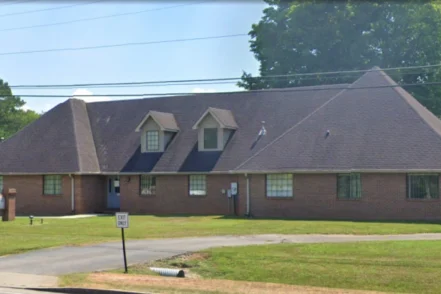 Tennessee
TennesseeCenterstone Estill Springs
416 South Main Street Estill Springs, Tennessee 37330
-
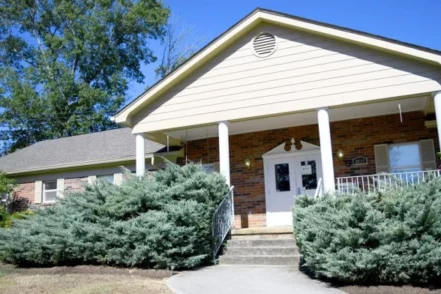 Tennessee
TennesseeJourneyPure Knoxville Alcohol and Drug Rehab
2636 Maryville Pike Knoxville, Tennessee 37920
-
 Tennessee
TennesseeMagnolia Ranch Recovery
39 Stevens Hollow Road Taft, Tennessee 38488
-
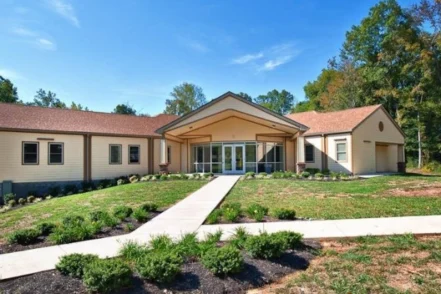 Tennessee
TennesseeMirror Lake Recovery Center
999 Girl Scout Road Burns, Tennessee 37029
-
 Tennessee
TennesseeEnglish Mountain Recovery Residential Inpatient
1096 Alpine Drive Sevierville, Tennessee 37876
-
 Tennessee
TennesseeDiscovery Place
1635 Spencer Mill Road Burns, Tennessee 37029
-
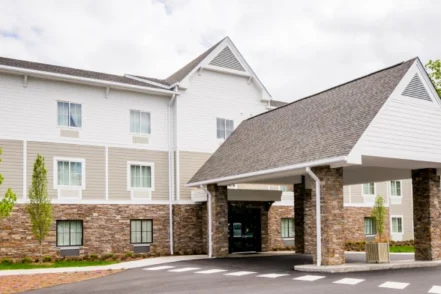 Tennessee
TennesseeCornerstone of Recovery Airport Highway
4726 Airport Highway Louisville, Tennessee 37777
-
 Tennessee
TennesseeJourneyPure Center for Professional Excellence
5110 Florence Road Murfreesboro, Tennessee 37129
-
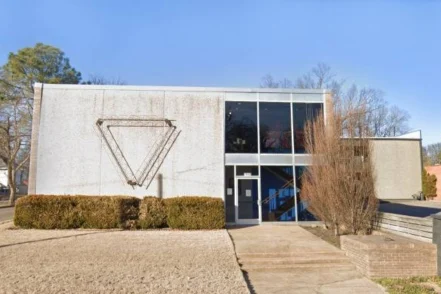 Tennessee
TennesseeFirst Step Recovery Centers
1950 Madison Ave. Memphis, Tennessee 38104
-
 Tennessee
TennesseeCumberland Heights Nashville River Road Pike
8283 River Road Pike Nashville, Tennessee 37209
